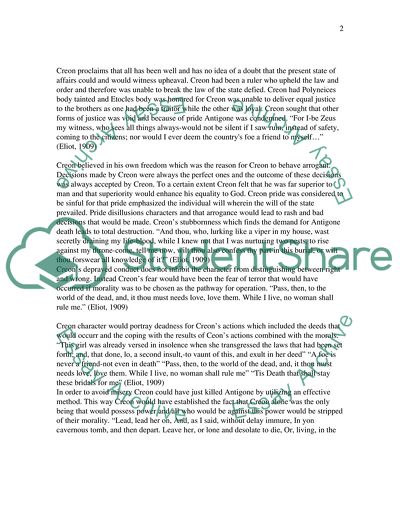Cite this document
(Who is the protagonist, the tragic hero, of Antigone: Antigone or Essay, n.d.)
Who is the protagonist, the tragic hero, of Antigone: Antigone or Essay. Retrieved from https://studentshare.org/literature/1713968-who-is-the-protagonist-the-tragic-hero-of-antigone-antigone-or-creon
Who is the protagonist, the tragic hero, of Antigone: Antigone or Essay. Retrieved from https://studentshare.org/literature/1713968-who-is-the-protagonist-the-tragic-hero-of-antigone-antigone-or-creon
(Who Is the Protagonist, the Tragic Hero, of Antigone: Antigone or Essay)
Who Is the Protagonist, the Tragic Hero, of Antigone: Antigone or Essay. https://studentshare.org/literature/1713968-who-is-the-protagonist-the-tragic-hero-of-antigone-antigone-or-creon.
Who Is the Protagonist, the Tragic Hero, of Antigone: Antigone or Essay. https://studentshare.org/literature/1713968-who-is-the-protagonist-the-tragic-hero-of-antigone-antigone-or-creon.
“Who Is the Protagonist, the Tragic Hero, of Antigone: Antigone or Essay”. https://studentshare.org/literature/1713968-who-is-the-protagonist-the-tragic-hero-of-antigone-antigone-or-creon.


